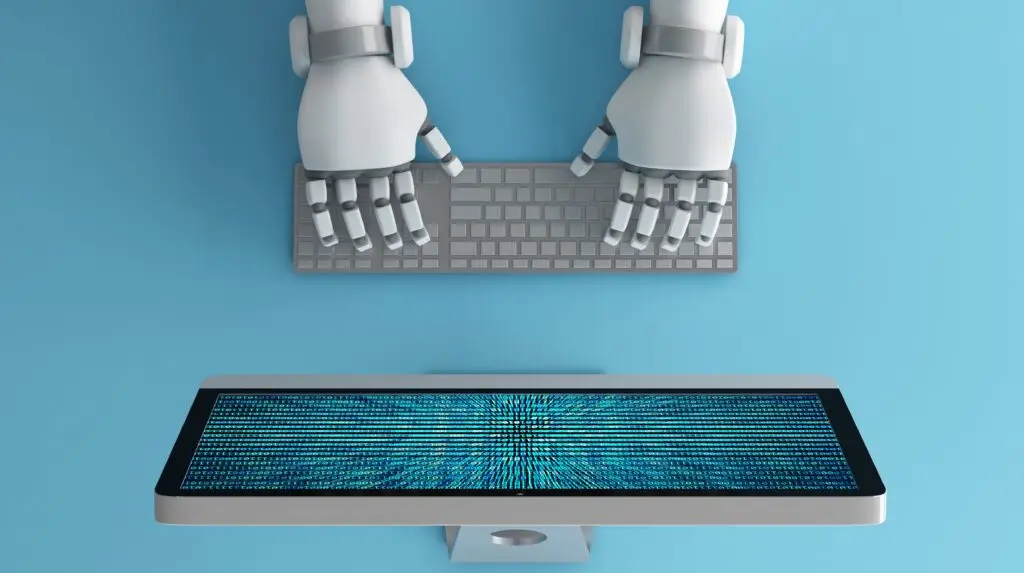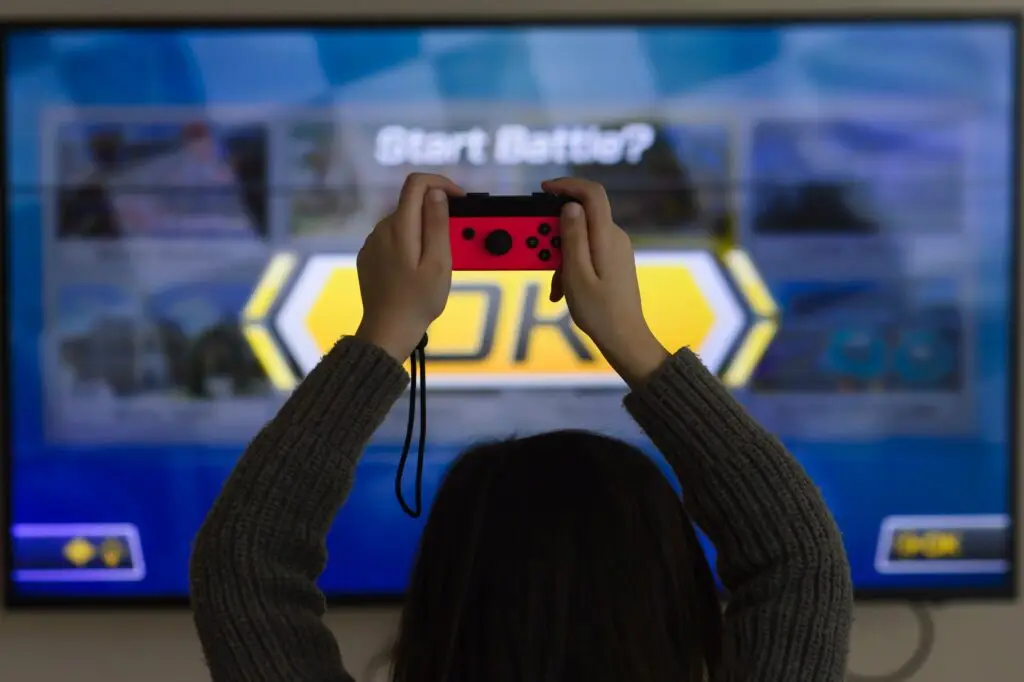Artificial Intelligence’s introduction into the gaming industry in recent years has been a horrible one.
I’m not talking about the non-player characters (NPC) artificial intelligence that exists in all video games. That’s nothing but prebuilt code that mimics how you act within a certain game. Such as Mimic Tear in Elden Ring which is designed to copy your actions.
Technically that is still Artificial Intelligence, and is completely okay. Video games have used this form of AI to keep games entertaining for years. Any NPC in a video game is “artificial intelligence” – but not in the sense that we’re used to today.
In this article, I will discuss the use of AI in creating video games. Just as we have seen AI influence music, sports, articles, and various other domains, its impact on game development has been controversial.
The utilization of AI in game coding and story writing has resulted in the mass production of subpar products, receiving terrible reviews. Additionally, it has led to the displacement of coders and game designers from their roles. Let’s delve deeper into this topic.

Why AI Sucks At Making Games
In all years up to now, Artificial Intelligence has always been just a string of code specifically implemented by developers to control certain in-game characters’ behaviors. However, in recent years, the pendulum is starting to swing more and more to the other side.
As AI is getting smarter, and big gaming corporations are getting greedier, there has been more of an inclination by massive gaming companies to give more and more of the developing responsibilities to the AI.
This means that the creative works that were once fronted by humans are now led by a dead machine.
Yet again.
Similar to how AI creates regurgitated and bad art, music, and text – it also cannot do anything new, original, or revolutionary when it comes to gaming. This means that the only thing Artificial Intelligence is doing for the gaming industry is reducing the amount of jobs for developers as it takes on more of a workload, and then reducing the game quality once it’s released.

It’s easy to see how this is affecting the gaming industry so far: because almost every new game, expansion pack, or otherwise famous follow-up to any franchise is getting horrible reviews everywhere.
Artificial Intelligence is simply not good at making video games. Its role shouldn’t be to code anything or get into the creative process, its role should be controlling the bosses designed to kill the player character.
And that is where the problem is: I would never suggest removing Artificial Intelligence from gaming, because it’s such a core component of how games are created.
But it CANNOT take over the creative process.
And that is where the problem lies.
Let me elaborate.
The Writing Process
The writing process, AKA, the storyline in video games, has always been highly undervalued. When companies hire new developers, all the money will always go towards making a game that looks and feels nice, and then the story just kind of happens to be there as an excuse for the player to get to kill things.
This means that in the AI revolution, the writers are the first to go.
This means that Artificial Intelligence is going to start writing the stories.
And this is why the stories are going to severely start sucking if they’re not already.
If you give a game developer who barely knows anything about lore the responsibility of writing a story with ChatGPT, I can guarantee you he’ll come up with something passable. But it won’t be either good or original.
Artificial Intelligence’s invasion is completely centered around regurgitating things it’s already seen and known, which is why there’s more and more of a symbiosis amongst all major games right now. I urge you to compare a lot of the major video games on the market and notice the similar tropes everywhere: progressions systems, story, fluency, “plot twists” — it is all merging together in a way that removes any form of originality from games.
There are no longer massive boards of game developers sitting around a table brainstorming ways to make things better, instead, they have an army of robot code stringing together whatever it thinks will scrape in the most money.

What This Means For Game Designers
You guessed it. They’re toast.
The game-developing profession is one of the industries facing the most layoffs as of 2023.
The big guys at the top have learned pretty quickly that by introducing real money cash shops, which are ways players can spend their actual money for virtual items or boosts in the game, they are earning a lot more money than they would pay developers to make better games.
This means that a lot of video games such as Madden, World of Warcraft, NBA 2K, Final Fantasy, and a whole host of other games are getting terrible reviews every single time they produce another update, game, or expansion.
They simply have no developers left to ensure that the production is good, that the quality is high, and that the players love the game. It simply doesn’t matter anymore; at least not to them.
All that matters is that they produce enough content fast enough, regardless of how good it is, to keep players buying more expansions, more in-game items, and other things that will drag money directly into the pockets of the big guys at the top.
And guess one time who the main culprit in all of this is.
Artificial Intelligence.
It can write code, stories, and ways for the cash shops to maximize profits in a split second.
Humans simply cannot compete.

Who cares, it’s just video games!
In the end, video games are just another form of entertainment and no one is forcing anyone to take part, right?
However, in the end, that is not the real problem here.
Although it’s a bummer that people’s hobbies and favorite pastimes are being ruined by the greed of companies milking artificial intelligence, the real problem is that of all the humans sitting behind the games.
The humans making the games.
Or at least the one that used to make them.
They’re losing their jobs at a rapid speed, and it’s only going downhill.
When people think of the AI revolution, they rarely think about these kinds of jobs. They think that all the jobs being lost are going to be the blue-collar workers, the customer service work, the “lower end of the scale” kind of work.
And although it is true that those people will most definitely suffer as well, there are a lot of nicer, higher paid “white collar” jobs that are going to be lost to the AI revolution as well.
McKinsey and Goldman Sachs both predict that up to 800 million jobs could be lost to Artificial Intelligence by 2030, which comes out to just about 30% of the entire world workforce.
A lot of these people will be game developers because it’s such an easily replaceable job that saves the board members, the CEO, and the various shareholders so much money.
That’s all that matters to them.

Why AI Is Bad For Gaming: Corporate Greed
Artificial Intelligence once again threatens the very essence of originality and creativity in the entertainment sector. The very backbone of gaming is being lost to strings of code run by the big guys at the top.
Ask any game developer, or anyone in the gaming industry at all, how they feel about this. They’re going to tell you that they’re overworked, forced to use Artificial Intelligence, and put in a place where, although they’re passionate about the games they are making, cannot produce high-quality content.
Then they get an upset player base that gives them terrible reviews and complaints about how horrible the games are, but since they no longer need to actually be happy because of these in-game cash shops and quick content that AI produces, their voices and complaints simply don’t matter.
The AI revolution is facilitating a culture of displacement in all sectors, with developers and designers losing their jobs at an alarming rate. It’s crucial that we push for a better balance where AI can assist in the gaming industry without devaluing human ingenuity.
Will this happen?
Maybe if people place more value on human-created content, such as what we do here at AiConsequences, there’s a chance we can start pushing for change here.
It’s a small step, but by simply acknowledging to your customer base, your gamers, your viewers, or whoever consumes your content that everything you make is 100% human and not just the result of robotic, regurgitated code, you are telling the world that your content is worth more.
I hope the same happens for games.
If you are interested in letting your audience know that you don’t let AI dictate your content, check out our NoAI-badges here that you can place on your website, games, or art to show that it is yours.
Let’s make sure we continuously put value on human-created content.
THIS ARTICLE WAS WRITTEN WITHOUT THE ASSISTANCE OF ARTIFICIAL INTELLIGENCE.